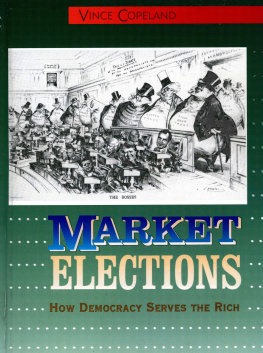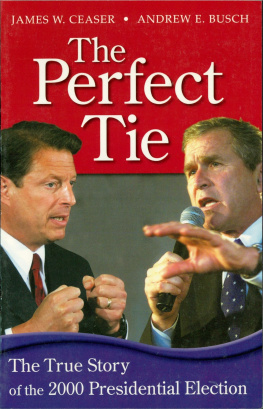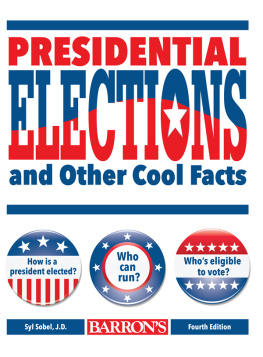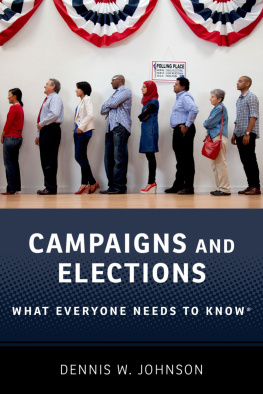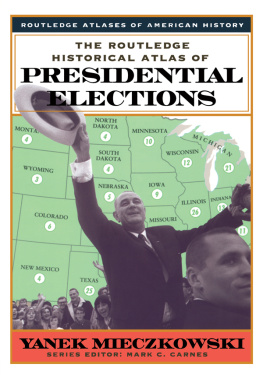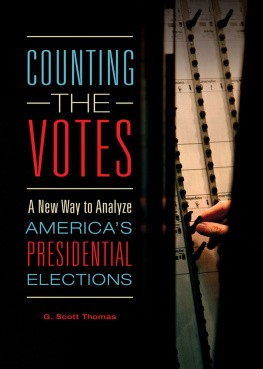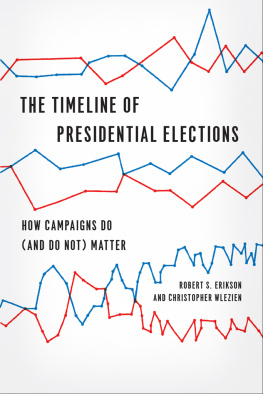MARKET ELECTIONS
HOW DEMOCRACY
SERVES THE RICH
Vince Copeland
World View Forum New York
Market Elections:
How Democracy Serves the Rich
Copyright January 2000
World View Forum
ISBN 978-0-89567-201-8
Published and distributed by:
World View Forum
146 West 24th Street, 2nd floor
New York, NY 10011
Phone (212) 627-2994
Fax (212) 675-7869
Email ww@wwpublish.com
Web http://www.workers.org
The ideas in this book may be freely disseminated. Any properly attributed selection or part of a chapter within fair-use guidelines may be used without permission.
Edited by Deirdre Griswold
Cover design by Lal Roohk
Library of Congress Catalog Card Number: 9905 3590
Market Elections Table of Contents
P
EDITOR'S PREFACE TO THE 2000 EDITION
How can democracy be at the service of the rich? Doesnt the very word mean government by the people? This is certainly what we are all taught in school. And yet the political system of the United States, which boasts of being the most democratic in the world, coexists quite comfortably with the most undemocratic economic structure, in which a smaller and smaller group of millionaires and billionaires owns and controls more wealth than the vast majority at the other end of the social spectrum.
Anyone who thinks must be struck by this seeming contradiction. But a closer look at how the U.S. electoral system has functioned over the last two centuries shows that in fact there is no contradiction. The kind of democracy that exists here has been very well suited for perpetuating the rule of a privileged few while giving the appearance of being at the service of all the people.
The word democracy in the title of this book refers to the kind of political system prevalent in much of the capitalist world today. It is what the boosters of the United States in particular mean when they couple democracy with the free market. Together they stand for a form of government that is as much for sale as the commodities around which economic life is centered.
As this book is being published, another of the quadrennial presidential elections is getting underway in the United States. Already, a year before the voting, the tens of millions of dollars raised by the candidates from their moneyed backers make the earlier war chests described in Market Elections seem like chump change.
As venal as this democracy may be, however, the process whereby the wealthy capture the votes of the many is not simple. History can never be scripted, and life is full of surprises. While Vince Copeland shows that the candidates with the most money behind them usually win, he also shows that there are exceptions to that rule. Mass struggles will impact on elections, even though these struggles are usually resolved through other means.
The struggle over slavery, for example, was reflected in the electoral process for many decades. Both the Democratic and Republican parties split and split again over the issue. It was resolved, however, not at the ballot box but in a bloody civil war. And even after that war ended, the struggle over whether the Black people would win full democratic rights, and control the land that their labor had made bountiful, continued to reverberate in the elections. But it was resolved by the back room acquiescence of the Northern money power to Klan terror.
Copelands book never loses sight of such broad historic trends, but it also gives due space to the quirks and oddities some comic, some puzzling of those who enter the political arena, and how that may impact on events.
When meteorologists try to analyze a complex weather system, they need to know more than the prevailing wind and water currents. The relatively small eddies and irregularities on the surface of the globe can produce significant storms. And while it takes no specialized knowledge to predict that winter will be colder than summer, your local forecaster needs much, much more information in order to tell people whether or not to carry an umbrella tomorrow.
So it is with politics. It is essential to keep the basics in mind at all times, and Copeland does that. Political movements are not just the inspiration or playthings of individuals, but arise out of the struggle of classes over the basic necessities of life. But this struggle is full of twists and turns, alliances are made and broken, and some leaders carry out the tasks assigned to them better than others. The interplay of these two factors, the necessary and the accidental, is what makes this book as delightful as it is instructive.
The chapters herein first appeared in article form in Workers World newspaper. They come from two different series Vince Copeland wrote about U.S. presidential elections. One series was written in 1976, the other in 1992-93.
The series that appears here as Part 1, From Washington to Coolidge, was written during and after the Clinton-Bush race of 1992. Its story begins right after the victory of the colonists revolution against England, even though no real presidential elections were held for many years in the original thirteen states. However, Copeland has much to say about those early political developments out of which grew the two major capitalist parties with which we are so familiar.
Copeland intended to bring this narrative up to date. Had he been able to do so, that series of articles would have sufficed for this book. But cancer and other illnesses cut his life short before he could finish. The last episode, which appeared in the Workers World of April 8, 1993, was about the 1920 election of Warren G. Harding. Copeland died two months after its publication, on June 7, 1993.
It had been an enormous exertion of will for him to sit at the computer, his back bent with osteoporosis, his abdomen and chest crisscrossed with scar tissue from several heart and colon operations. Just picking up the many books he made reference to was an effort.
You might expect to find at least a whisper of pain or pessimism in the tone he took to his material.
But there is nothing of the kind. The last chapter he wrote, on Harding, is almost light-hearted, if such a dull subject could ever lend itself to levity. Copeland showed how this ho-hum politician had made it to the top because of the behind-the-scenes work of a Wall Street power broker and king maker. Copeland let us know what the ruling class really thought of Harding Alice Roosevelt Longworths famous judgment that he wasnt a bad man, just a slob but he didnt leave it at that. Because as interesting (or ludicrous) as the personalities may be that march through this story every four years, their importance lay in their ability to employ politics the art of deceiving the masses in the service of those who really put them in office.
But isnt that the voters? Arent they responsible for which characters get elected and which dont? Yes, the attitudes and moods of the voters do have to be taken into account by the political parties in a capitalist democracy, but there are a million ways to manipulate that and, ultimately, frustrate what the people really want.
We think the reader will agree that Vince Copelands writing makes history, with all its wrinkles and little and big ironies, come alive. And that, while having a keen eye for personal foibles, villainies, and tragedy, he used them to illuminate the broader social and class struggles that are engaged in every day by the millions, who are rarely in the spotlight.
Vince Copelands deep interest in politics and the class struggle was not a bit academic. He spent many years as a militant trade unionist in Buffalo, New York. A welder at the big Bethlehem Steel plant in the gritty suburb of Lackawanna, he helped forge a caucus of Black and white workers who successfully struggled against de facto segregation in hiring for the different departments of the plant. He vividly described the conditions there in his pamphlet The Blast Furnace Brothers .
Next page
